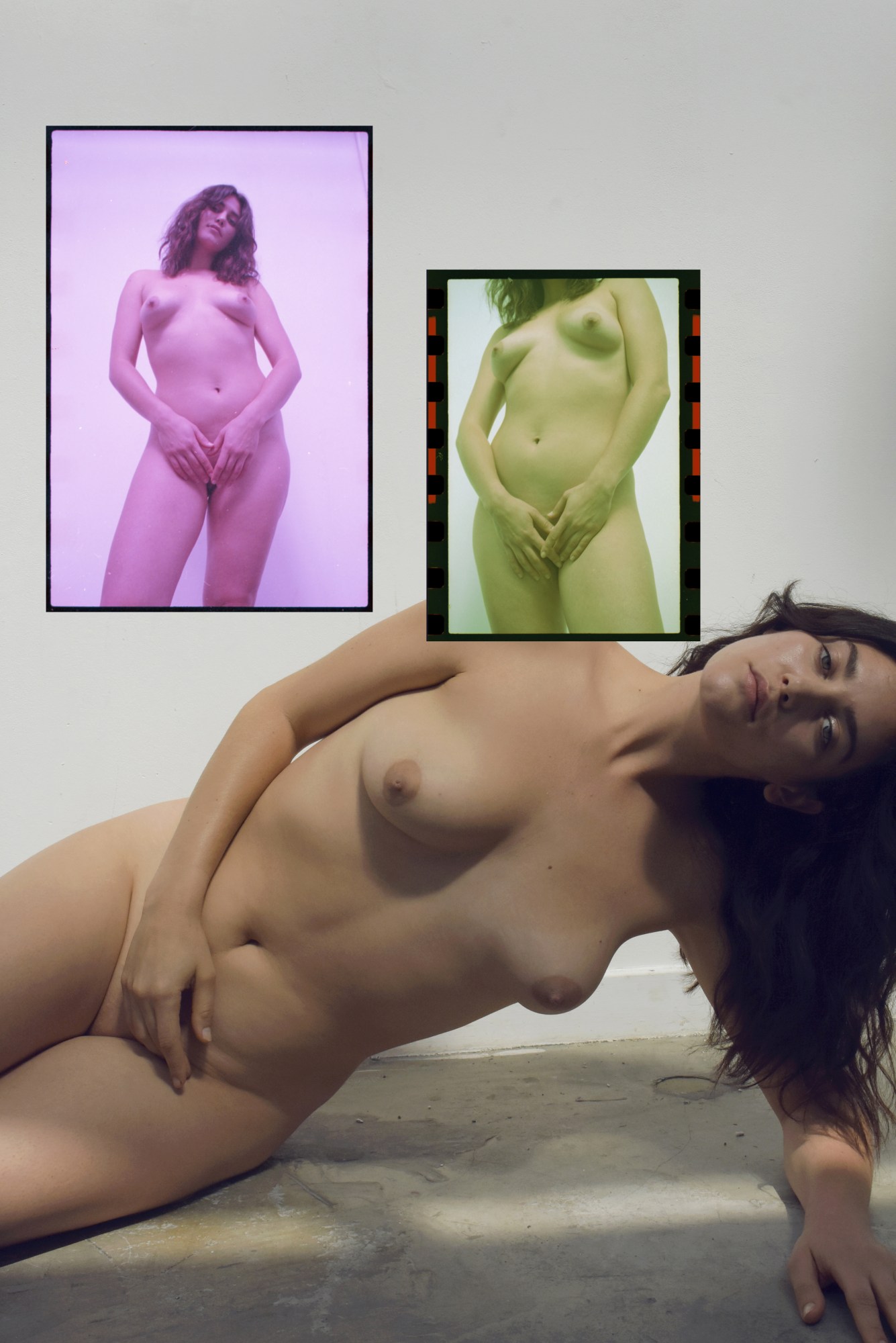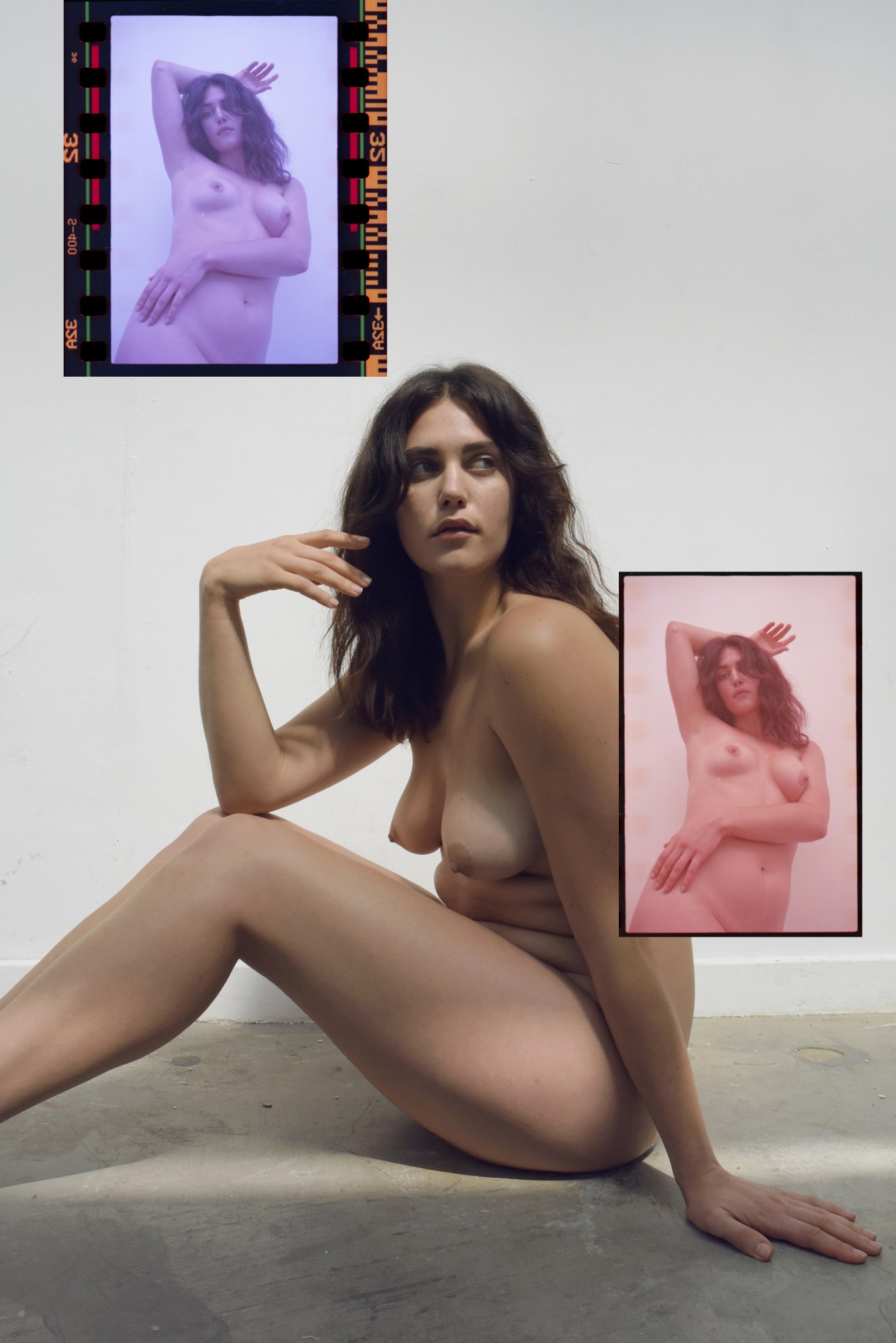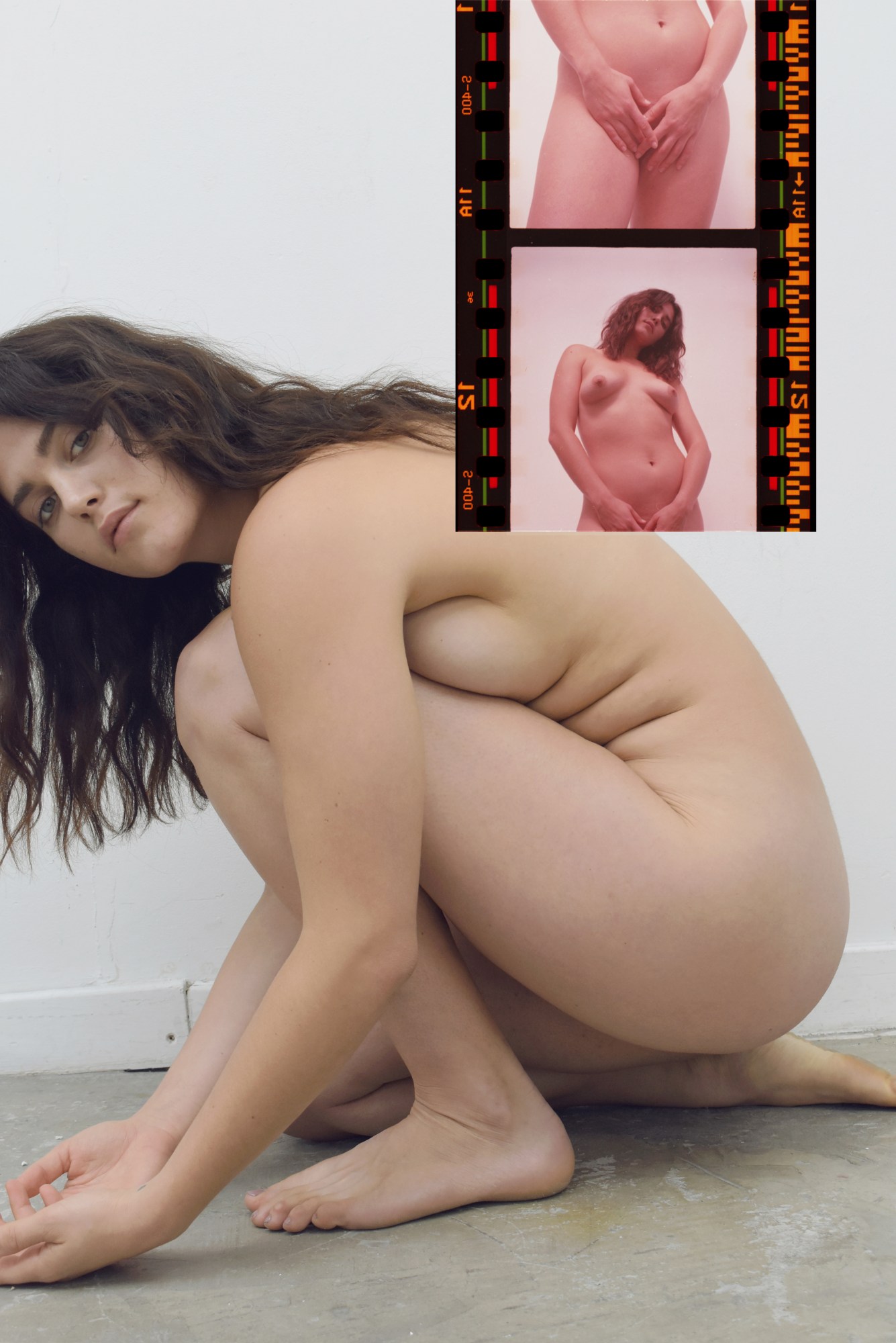Ali Tate never felt like she fitted in. With her bigger than average frame she felt fat, ugly, isolated and depressed. Even when her incredible looks won her a modelling contract, she still felt deeply unhappy about her appearance. She hated being labelled “plus size”. It was, in Ali’s mind, confirmation that she was bigger than the ideal. But that point of view is a world away from her mentality now. Six years later, with campaigns for Mango and Reformation on her CV, Ali’s never felt better. Here she tells us how her perspective radically shifted.
I grew up in a small town in northern California called Saratoga, in the tech-world of Silicon Valley. My parents are restaurant owners, and I played football at a high level in university after training throughout my childhood. I come from an exceptional school district and I’ve had a privileged home life. I’ve been extraordinarily lucky in many ways.

But I’ve been unlucky in others. Like many girls, growing up I was deeply insecure about my body. The first time I started seeing it in a negative light was as early as eight years old. I can’t recall the exact moment I looked into the mirror and didn’t like what I saw, but I know I felt like one of of society’s dreaded “fat people” from a very young age.
Because I played football I was more of a tomboy than some of the other girls that I went to school with, but that did not stop me from wanting to be part of the in-crowd. And the girls in that crowd were all very skinny. I was never skinny. My bones always seemed to be bigger than everyone else’s. I was chubby, and I was a lot taller than most of my peers. I adopted a hunch to counteract what I felt was a huge frame. Boys would make fun of me, sometimes under their breath, sometimes to my face.
I remember once when my best friend, Taylor, was sleeping over, we stood in front of the mirror putting on play make-up and doing our best pouts. I pictured myself as one of the beautiful and desirable women on the cover of magazines that I spent so much time looking at. But after catching sight of my chubby stomach through my shirt, I realised that was all a distant fantasy. I could never be desired — I was fat. Fat girls aren’t desired, I believed. Taylor felt the same. She said she could never leave the house without sucking in her stomach for the whole day. We were 10 years old then and we both played football three days a week — hardly sedentary.
The insecurity I felt over my body taking up too much space haunted me for years. In fact, it didn’t leave me even when I was an athlete in peak physical fitness. Sometimes after I finished football practice I would go on another run. I tried throwing up my food for a few months, but stopped when I realised that was never something that would go unnoticed by my friends and family. I remember people telling me they thought I was pretty, but I never believed it. I thought they were just being nice, because how could anyone my size be pretty?

But then a truly amazing thing happened that would urge me along into the next stage of my life. I went to London to study abroad for a year and while there, I entered a curvy modelling competition in a desperate bid for validation. While I did not win, I did get a contract with a plus size modelling agency. I was happy – it seemed to suggest that I was pretty, something I had been striving to be my whole life. Yet I was also conflicted; being called a plus size model was something I was ashamed of. It seemed to reiterate everything I had thought about myself as being fat. I didn’t feel like a proper model. The first few shoots I did, I felt so ashamed by how I looked in the pictures.
But over time, as I saw more curvy models in the industry, my mind started to shift. All the years of sadness about my body, of wishing more than anything else that I could be skinny, started to recede. I saw beautiful women in my industry who weren’t skinny! That meant I could be beautiful too. I stopped slouching; I wore my size like a badge of honour; I stopped trying to take up less space. I began to love my body. They say if you fake it enough, it becomes real. Well that certainly was the case with loving my body.
Now as a model in the curve industry for over six years, I look back on the time when my body was a burden, as a bad dream. It seems crazy to me that I could have despised myself so much. I feel bad for the younger me, and I wish sometimes I could go back and tell her what I now know. That having a smaller body will never make you happier. That only loving yourself as you are will. I feel bad at how much time and energy was wasted wishing for a different me.
The curve industry is evolving. It’s very different from when I started. Models like Ashley Graham have opened doors for plus sized models that have never existed before. The curve industry has our own “indie” models like Paloma Elsesser and Barbie Nox, the sex-pots like Tabria Majors, and exotic looking beauties like Sabina Karlsson. There is more room than ever in the industry for all types of women; big, small, black, white, you name it.

As more women see a fair representation of models, diversity becomes a norm. Young girls can look at models now and see themselves. This sense of normalising a diverse range of women is hugely beneficial to the younger generation’s mental health. Young women today have a chance to avoid what I went through by witnessing diverse representation. Hopefully when they see the models in magazines, they can find a little piece of themselves in there and bypass that whole painful stage of believing they will never be worthy of love and admiration. Maybe the energy that would have been devoted to trying to fit society’s narrow views of beauty can be used instead to, I don’t know, become politicians or scientists. To level the playing field between men and women as leaders and innovators in the workforce. To change the world for the better.
Get i-D straight into your inbox by signing up for our newsletter!
Credits
Photography Anabel Navarro Llorens
Ali Tate is with Milk Management
